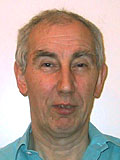Steve Cook, Microsoft

Steve Cook is a Software Architect in the Enterprise Frameworks and Tools group at Microsoft, which he joined at the beginning of 2003. Previously he was a Distinguished Engineer at IBM, whom he represented in the UML 2.0 specification process at the OMG.
He has worked in the IT industry for 30 years, as architect, programmer, author, consultant and teacher. He was one of the first people to introduce object-oriented programming into the UK, and has concentrated on languages, methods and tools for modelling since the early 1990s. He is a member of the Editorial Board of the Software and Systems Modeling Journal, a Fellow of the British Computer Society, and holds an Honorary Doctor of Science degree from De Montford University.












